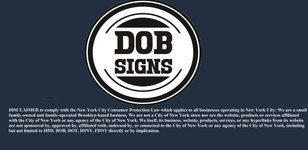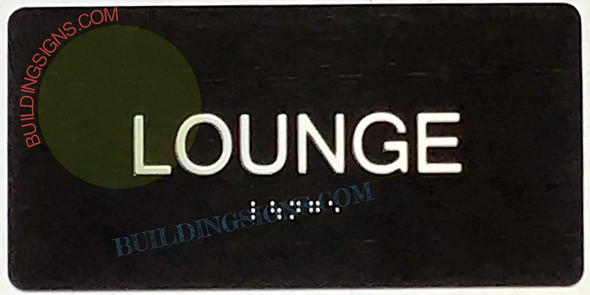BUILDINGSIGNS.COM
PRIVATE SIGN Tactile Touch Braille Sign (Aluminum !!,black, Size 4x8)- The Sensation line
- UPC:
- 736816265721
- Availability:
- Usually Ship Within 2 days
Description
About this item
RE-ENTRY ALL FLOORS SIGN
RAISED LETTERS RAISED BRAILLE STRONG CONTRAST
ALUMINIUM SIGN ( NOT A PLASTIC )RUST FREE COMMERCIAL USE
COMES WITH DOUBLE SIDED TAPE- EASY INSTALLTION
DESIGNED TO LAST
SIZE 4X8 INCH
A "Private Sign Tactile Touch Braille Sign" is a sign designed to indicate that a particular area or space is private or restricted. This type of sign incorporates tactile, touchable, and Braille elements to ensure accessibility for individuals with visual impairments or blindness.
The purpose of this sign is to communicate that access to the designated area is limited to authorized personnel only. It is commonly used in offices, buildings, or facilities where certain areas require restricted access for security, privacy, or safety reasons.
The sign includes tactile elements, which are raised, textured surfaces that can be felt and identified by touch. These elements allow individuals with visual impairments to navigate and interpret the sign through touch. Additionally, the sign incorporates Braille, a writing system that utilizes raised dots representing letters and numbers, enabling individuals who read Braille to access the information through touch.
The content of the sign typically includes the word "Private" or a similar message to clearly convey the restricted nature of the area. It may also include additional text or symbols to provide more specific instructions or clarify the reason for the restricted access.
These signs are often made from durable materials, such as metal or plastic, and feature raised tactile elements and Braille text. They are designed to meet accessibility standards and regulations to ensure that individuals with visual impairments can access and understand the information provided.
The placement of the sign should be near the entrance or in a visible location to clearly indicate that the area beyond is private and access is restricted. It is important to position the sign at an appropriate height for easy reach and legibility.
It is recommended to consult accessibility guidelines, local regulations, and relevant authorities to ensure compliance with specific requirements for tactile touch and Braille signage related to private or restricted areas, as these may vary depending on the jurisdiction or building codes.
DISCLAIMER to comply with the New York City Consumer Protection Law which applies to all businesses operating in New York City: We are small family-owned and family-operated Brooklyn-based business. We are not a City of New York store nor are the website, products or services affiliated with the City of New York or any agency of the City of New York. We ourselves, our business, websites, products, services, or any hyperlinks from its website are not sponsored by, approved by, affiliated with, endorsed by, or connected to the City of New York or any agency of the City of New York, including but not limited to HPD, DOB, DOT, DSNY, FDNY and federal directly or by implication. DISCLAIMER These codes may not be the most recent version. The State / federal or other regulation department may have more current or accurate information. We make no warranties or guarantees about the accuracy, completeness, or adequacy of the information contained on this site or the information linked to on the state site. Please check official sources. The requirements for sign content are determined by intended use and by applicable regulation. The BUYER is responsible for determining the appropriate content for a sign or package of signs. WE make no warranty or representation of suitability of a sign for any specific application. IT IS THE CUSTOMER'S RESPONSIBILITY TO ENSURE THAT THE SIGNS THE CUSTOMER ORDERS ARE IN COMPLIANCE WITH ALL STATE, FEDERAL, LOCAL, AND MUNICIPAL LAWS. Please review terms and conditions prior to purchase. For more information about what is required, see the laws that are referenced and the rules applicable to your city and state. This page is for informational purposes only and is not intended as legal advice, professional advice or a statement of law. You may wish to consult with an attorney.






















